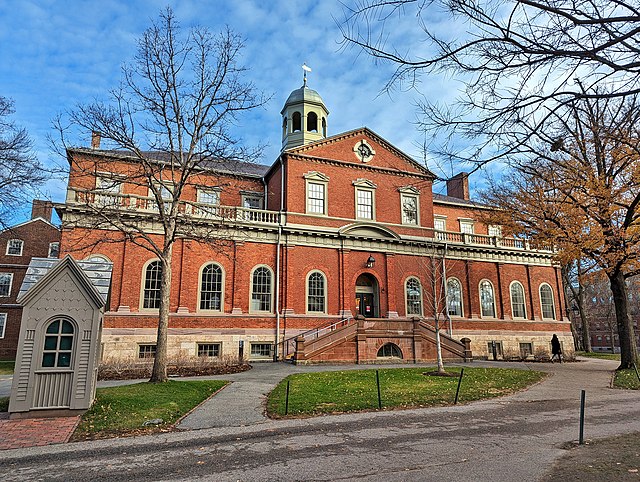Harvard University professors filed a lawsuit against the Trump Administration on April 21, escalating the ongoing battle over government overreach into the private institution. The federal government’s freeze of $2.2 billion in multi-year grants was in response to the university’s refusal to comply with new demands and reforms sent by the Trump Administration, most particularly over the protection of Jewish students on campus and removal of DEI programs within the university.
Harvard was among the 60 schools who received a letter from the Department of Education’s Office for Civil Rights on March 11, stating that they were “under investigation” for “Title VI violations relating to anti-semitic harassment and discrimination.” The president of Harvard University, Alan Garber, received a later email from an agency commissioner with the General Services Administration (GSA), on April 3 as well as a follow-up email on April 11 expanding on the steps Harvard would need to take to maintain its financial relationship with the federal government. The follow-up email included a four-page list of provisions that would act as a basis for an “agreement in principle.”
The list of demands sent in the email from the GSA included reforms to Harvard’s governance and leadership, international admissions, merit-based hiring, student discipline, whistleblower reporting and protections, transparency and monitoring, merit-based admissions, viewpoint diversity in admissions and hiring, and the discontinuation of DEI.
“In every way, Harvard has failed to abide by its legal obligations, its ethical and fiduciary duties, its transparency responsibilities, and any semblance of academic rigor,” Department of Education Secretary Linda McMahon’s said in a letter to Garber “[Harvard] has made a mockery of this country’s higher education system.”
The federal Task Force to Combat Anti-Semitism announced the freeze of funding on April 14, only hours after Garber published his statement refusing to accept the proposed agreement along with the email he received from the GSA. Additionally, President Trump suggested the idea of removing the university’s 501(c)(3) tax-exempt status.
“It violates Harvard’s First Amendment rights and exceeds the statutory limits of the government’s authority under Title VI,” Garber said in his statement from the college responding to the demands. “No government—regardless of which party is in power—should dictate what private universities can teach, whom they can admit and hire, and which areas of study and inquiry they can pursue.”
Harvard’s lawsuit, prompted by steps the government took against the university, requests that the court repeal the funding freeze and grant Harvard access to previously approved funding as well as prevent the Trump Administration from denying future funding without engaging in procedures contained in federal law.
The consequences of the funding freeze were quickly made apparent as much of the federal funding supports research at the university and 11 affiliated hospitals, including Massachusetts General Hospital, the Dana-Farber Cancer Institute and Boston Children’s Hospital.
Despite the university’s push back to the Trump administration’s demands, they have taken steps to show they are willing to compromise on certain matters. Only a week after Harvard filed their lawsuit, they renamed their DEI office to the office of “Community and Campus Life.”
Harvard then announced that it would no longer host or fund affinity group celebrations during commencement after the Department of Education threatened to cut funds if the school did not cancel graduation celebrations that could separate students by race.
“In the weeks and months ahead, we will take steps to make this change concrete and to work with all of Harvard’s schools and units to implement these vital objectives, including shared efforts to reexamine and reshape the missions and programs of offices across the university,” Chief Community and Campus Life Officer, Sherri Ann Charleston, said in an email to the Harvard community.
After Harvard’s request to fast-track the legal battle was approved, both sides appeared in court for the first time in Harvard’s suit for a 15-minute hearing on April 28 in front of US District Court Judge Allison Burroughs, a Barack Obama appointee. Judge Burroughs set the date for oral arguments to be on July 21.




